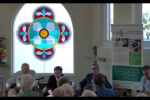A review into the effect of short-term holiday lets will seek to improve the holiday letting market for those living in popular tourism destinations.
-
Open call for evidence aims to understand impact of increase in short-term holiday lets in England following the rise in use of rental booking websites and apps
-
Review will look at the market and the opportunities and challenges presented for consumers and tourism communities
-
Airbnb listing data showed a 33 per cent increase in UK listings between 2017 and 2018
The scheme, proposed in a new government review looking at the impact of increases in short-term and holiday lets in England, could involve physical checks of premises to ensure regulations in areas including health and safety, noise and anti-social behaviour are obeyed.
Airbnb listing data showed a 33 per cent increase in UK listings between 2017 and 2018 and the rise in the use of online platforms for short-term letting has brought many benefits - from an increase in the variety and availability of options to allowing people to make money from renting out spare rooms and properties.
Commenting on the call for evidence James said:
"After welcome action by the government to close tax loopholes and ensure second home owners pay a fair share of tax which I lobbied for, I welcome this call for evidence looking at the impact of short term lets while supporting tourism. I encourage people to give their views on striking the right balance on this issues."
Almost three quarters of people (72 per cent) told Airbnb in its green tourism report that the environmental benefits of home sharing played a role in their choice to travel using that platform. A separate report by the firm in 2018 said a typical UK host on their platform earns an average of £3,100 a year.
But the Government understands there can be an impact on housing supply and price in these areas and there are fears caused by evidence of a rise in anti-social behaviour including noise, waste and drunken behaviour in local communities. Lower protections for guests caused by negligence of health and safety regulations are also amidst concerns.
The review will also consider the operation of the provisions in London under the Deregulation Act 2015 to allow for measures to be taken against anti-social behaviour, whilst allowing Londoners to rent out their homes.
The devolved administrations have taken steps in this area. The Scottish government set out legislation requiring all local authorities in the country to establish a licensing scheme by October 2022. In Northern Ireland tourist accommodation cannot be provided without a valid certificate issued by the national tourist board. Wales has publicly stated its ambition to establish a statutory registration or licensing scheme.
And in other countries, anyone wishing to advertise and provide guest accommodation in Portugal must register electronically before doing so, Greece requires anyone renting out their home to paying guests to register, and, in parts of Ireland designated ‘Rent Pressure Zones’, hosts are only allowed to short-term let their primary residence after having registered.
The commitment to consult on tourist accommodation was first made in the government’s Tourism Recovery Plan published in June 2021.
The government has already taken action to give communities greater ability to manage the impact that second homes can have in some locations. These include closing tax loopholes, introducing higher stamp duty and permitting councils to apply higher council tax on second homes.
This call for evidence will allow the government to gather the evidence and data to inform any future steps and it wants to hear the views of all parties, including hosts, online platforms, accommodation businesses and local authorities.
To respond: Short Term Tourist Accommodation in England - Call for Evidence

